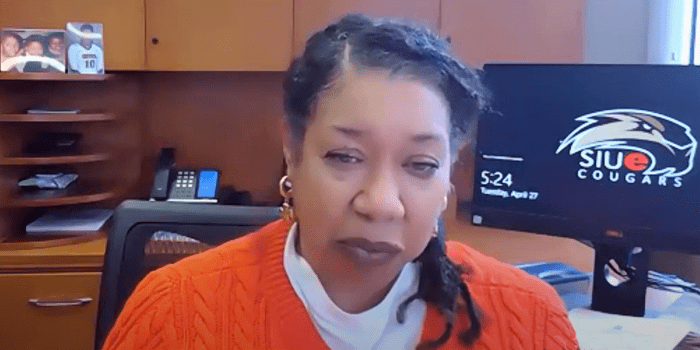(Molly Bruns, Headline USA) Robin L. Hughes, a dean at Southern Illinois University Edwardsville, publicly boasted of hiring people specifically because of their race prior to the Supreme Court’s decision overturning affirmative action last June.
While not necessarily illegal at the time, Hughes’s confession to the publication Diverse Issues in Higher Education further bolsters critics’ arguments that such programs had far outlived their purpose of leveling the racial playing field, and instead had become systemically discriminatory in favor of those who claimed to be oppressed.
And it raises further questions as to whether academics who so flagrantly violated the spirit of affirmative action will readily comply with the new law of the land or attempt to test its legal limits.
Hughes, who is herself black, was hired as the dean of SIUE’s School of Education, Health and Human Behavior in 2019 and brought with her an extensive background in diversity-related topics, including critical race theory.
She controversially undertook a series of “cluster hires,” a mechanism some use to specifically hire new team members of color in cohorts to create a sense of unity and kinship, according to the Daily Caller.
The dean reported several roadblocks in her attempts to pull off the cluster hires—including accusations that her excessive focus on diversity was too forward, that she hired candidates who were not qualified and that she was hiring some select candidates only because they were black.
Her response to the final accusation: “I absolutely am!”
Some left-wing radicals like Hughes expressed concern that the Supreme Court’s recent ruling against race-based college admissions may affect their ability to perform cluster hires—particularly those explicitly searching for candidates of color.
“I hope that we don’t see the sort of rollback that I think we’re seeing with some of the commitments institutions made around the summer of 2020,” said Candace N. Hall, an SIUE graduate program director and professor, who is black.
“Now we’re seeing institutions reel that in,” Hall added, in reference to the virtue-signaling and platitudes that followed the race riots triggered by the death of George Floyd. “I hope that that’s not the same thing that happens with cluster hires.”
She did not specify what overtly discriminatory hiring practices in academia had to do with preventing police brutality.
Hall joined SIUE as part of a cluster in 2020, and reportedly remains close with them.
She even hosted bi-weekly bonfires at her home to encourage camaraderie between the new hires.
Her cluster was “the biggest thing that helped sustain her,” she said. “I don’t know if I would have survived the pandemic.”
In the wake of the Supreme Court’s overturn of affirmative action, several lawsuits concerning race- based hiring practices are now making their way through the court system.
The conservative legal watchdog American Alliance for Equal Rights sued two major law firms for violations of the Civil Rights Act of 1866 for excluding white people from diversity fellowship opportunities.
America First Legal sued Meta, parent company of Facebook, for allegedly supporting race-based hiring.
Headline USA’s Ben Sellers contributed to this report.

